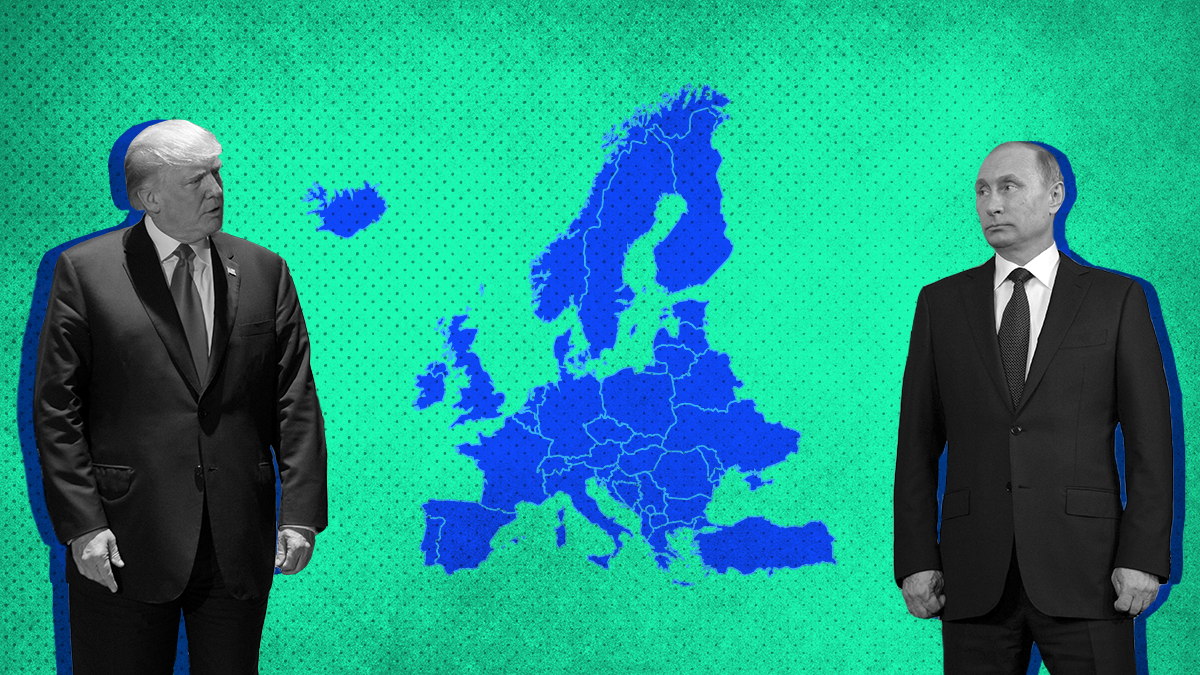Signal spoke with Eurasia Group Vice Chairman Gerry Butts about Europe’s future given the uncertainty created by both Russian aggression and America’s volatile politics. This interview was edited for length and clarity.
Willis Sparks: The G7 and NATO summits this week have focused on threats from Russia and challenges from China. But based on your recent conversations with senior European officials, you’ve said they’re also worried about long-term threats to Europe’s alliances posed by America’s tough-to-predict political future. Say more about that.
Gerry Butts: Europeans are looking beyond the midterms to the 2024 US presidential election. And having experienced around the NATO table the kind of belligerence they experienced from [Donald] Trump the first go-round, they’ve got to be worried that they’re going to end up holding the bag in a fight with the Russians in Europe with no Americans at the table.
Sparks: So, on the security front, what can Europe realistically do to protect itself against big swings in the future US commitment to Europe’s defense?
Butts: In the short term, not a lot. They have to build up their own capacity, and they’re moving pretty quickly to do that – the Germans, in particular. But if I were in Ukraine, I would worry that the Europeans might have to cut a territorial deal with the Russians.
I think the Germans are going to be sorely tested by the energy situation this winter. It’s hard to draw conclusions about the political mood in Germany until the Russians cut off the gas in the dead of winter. The public mood is really unsettled. I can see a broad spectrum of possible outcomes here. I can see one where the Germans say, “Why do we care so much about the Ukrainians when we can’t heat our homes?” But I can also imagine almost an epochal hardening of opinion against Russia. Either is possible.
Sparks: Europeans, particularly the French, have talked for decades about a common European defense beyond NATO. Does the current fear of Russian presence and US absence intensify the debate?
Butts: I think that Americans underestimate the consequences of the Trump presidency and just how seriously it was taken in Europe. If you’re German, French, or even British, and you’re thinking about what continental security looks like in Europe when the US isn’t present, nothing concentrates the mind like the threat of Russian invasion. That will instigate more action than all the talk of the past 25 years.
Sparks: In a way, Putin is proving to the Germans that they can’t be complacent. They have to spend the money on defense, no?
Butts: That’s right. The only reference point in my life is, in 1990, history was going to turn out great, and it felt like nothing could go wrong. Of course, a lot went wrong. Most of what we thought was going to happen didn’t happen. Now, we’re overcome by blanket pessimism. The worst-case scenario very seldom develops, but the unexpected always happens.
Sparks: What about climate change? What can EU leaders do to advance their plans knowing the next US president could be Donald Trump or someone who agrees with Trump on climate deals?
Butts: I think this whole situation is putting steel in the spine of the Europeans to decarbonize as rapidly as possible. They don’t want to trade reliance on Putin’s fossil gas for reliance on Trump’s fossil gas. That’s the geopolitical pickle they’re in. The only way out of that is to accelerate decarbonization. That’s easy to say and really hard to do. They now have two energy transitions. They have to get off Russian gas and then off of [all] fossil fuel.
By the way, I think the energy dimensions of Putin’s calculation to [invade Ukraine] were material if not decisive. He knew his maximum leverage point over Europe was right now. The longer he waited, the less leverage he would have as Europe decarbonizes. Putin recognizes that Europe’s climate policy is a real thing, and the tool he wanted to use would only get duller and duller.
Sparks: How long will each of these energy transitions take?
Butts: Decarbonization will take 15-20 years, but I think Russian gas will be gone from Europe within the next couple of years. The assumptions in European reports and forecasts are all based on absolute best-case scenarios, but they know how difficult this is going to be.
Putin doesn’t believe the world can exist without fossil fuel. Modern economies can’t run on renewables. He wants to prove that. If we’re wrong, Putin will prove that after the sugar rush of Western unity wears off, he can win. But Europe still has to go through both these energy transitions. I think this will be deeply impoverishing for Russia for generations to come.
This comes to you from the Signal newsletter team of GZERO Media. Subscribe for your free daily Signal today.
- COVID's impact on education and its long-term geopolitical consequences: Gerald Butts - GZERO Media ›
- Christie: US should keep leading Ukraine aid - GZERO Media ›
- Would Trump give Ukraine to Putin? - GZERO Media ›
- Why Trump-Putin calls are cause for concern - GZERO Media ›
- Europe's biggest concerns about Trump's return - GZERO Media ›
- How Trump forced Europe's hand on Ukraine - GZERO Media ›
- Putin trolls Europe about "the master" Trump - GZERO Media ›
- How Europe might respond to Trump's tariffs - GZERO Media ›
